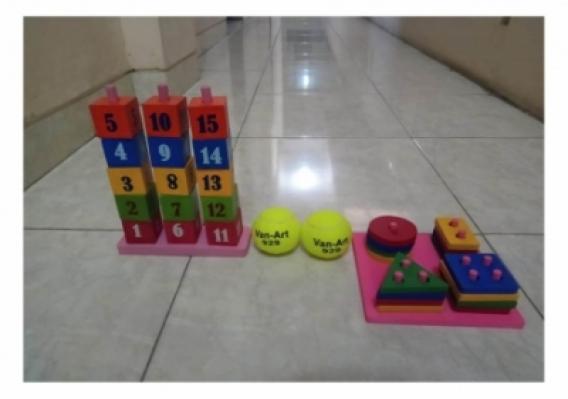REDUCING GADGETS ADDICTION THROUGH TRADITIONAL GAMES

The Covid-19 pandemic has exposed children to gadgets such as computers, laptops, and cellphones more intensely due to distance learning. Gadgets for learning are also followed by the increasing use of gadgets for social media and online games that trigger gadget addiction. To reduce this problem, UNY students consisting of Dwi Agnes Setianingrum, Dian Anggraini and Akhip Nugroho (science education), Furi Ningsih Sri Sukowati (physics education), and Aerafatma Ahyaun Nisa (elementary school teacher education) initiated the development of a traditional game. The team has completed an integrated Chineseboy-Sulamanda traditional game using the PIPATIC method- in collaboration with the Berbah Children's Forum.
"Cinaboy or boy-boyan is a traditional game that can develop children's cooperation, communication, and creativity skills," said Dwi Agnes Setianingrum. Meanwhile, Sulamanda can improve communication skills, develop suitable strategies, release children's emotions, and train children to study in groups.
Regarding the PIPATIC method, the UNY student team believes that this method can overcome behavioral and cognition problems children face while playing. "PIPATIC, which consists of 4 phases, namely motivation, educational games, personal therapy, and self-regulation, can be carried out for school-age children because school-age children have started to think critically and logically, and have begun to develop problem-solving strategies," said Dian Anggraini. (Dedy, Tj. Lak)






